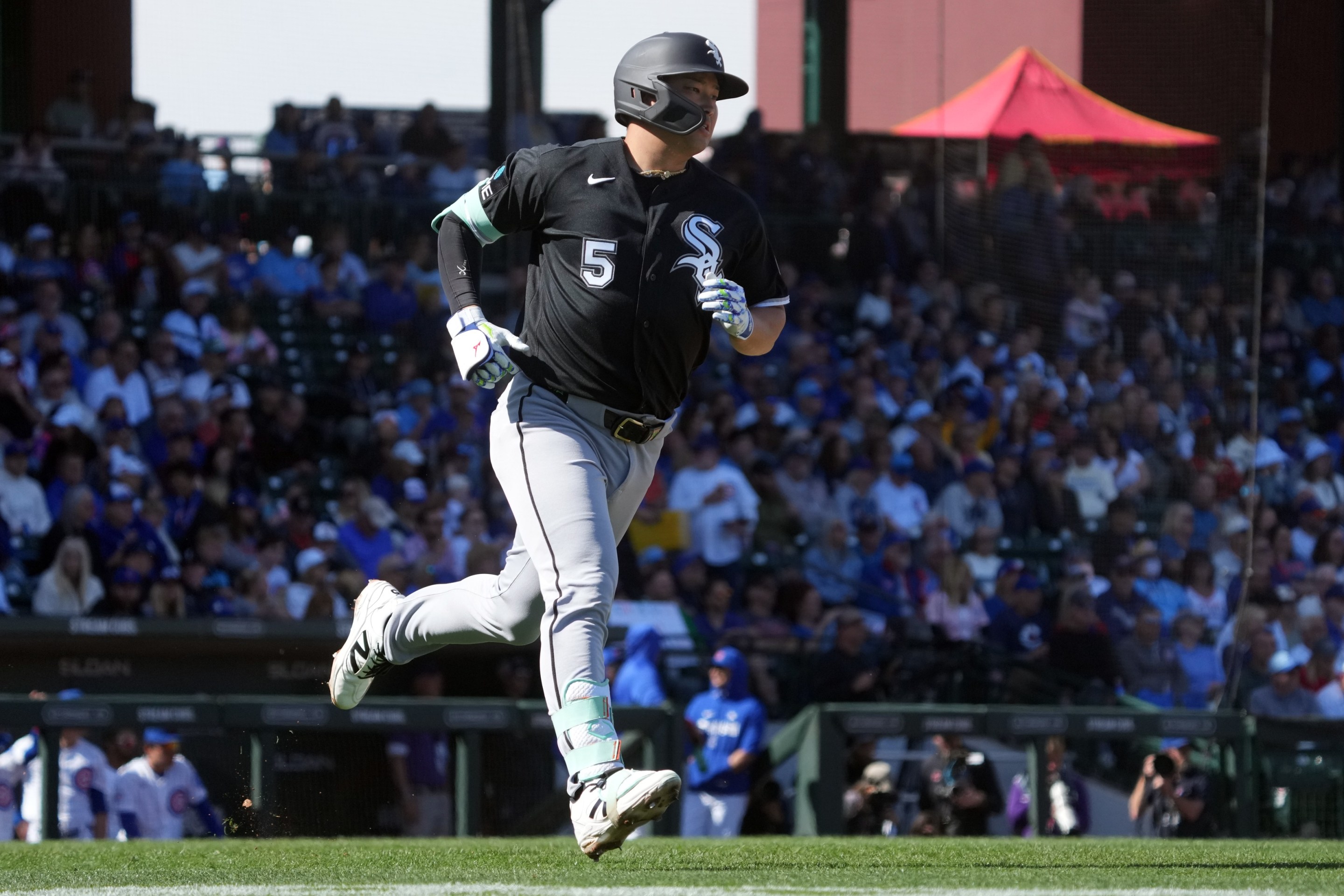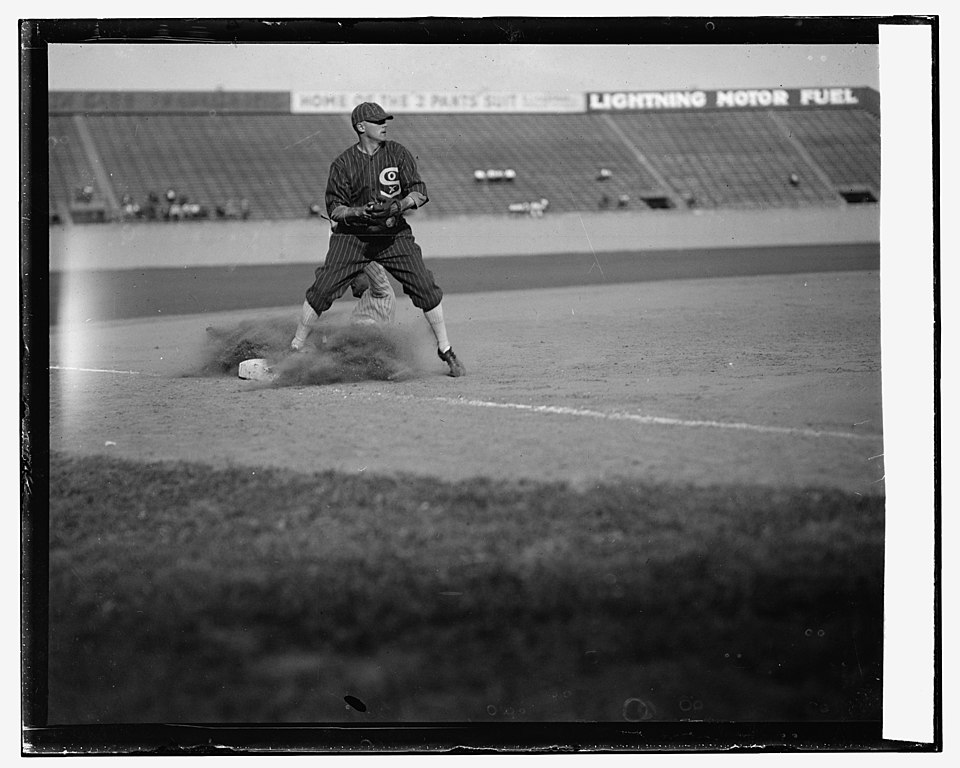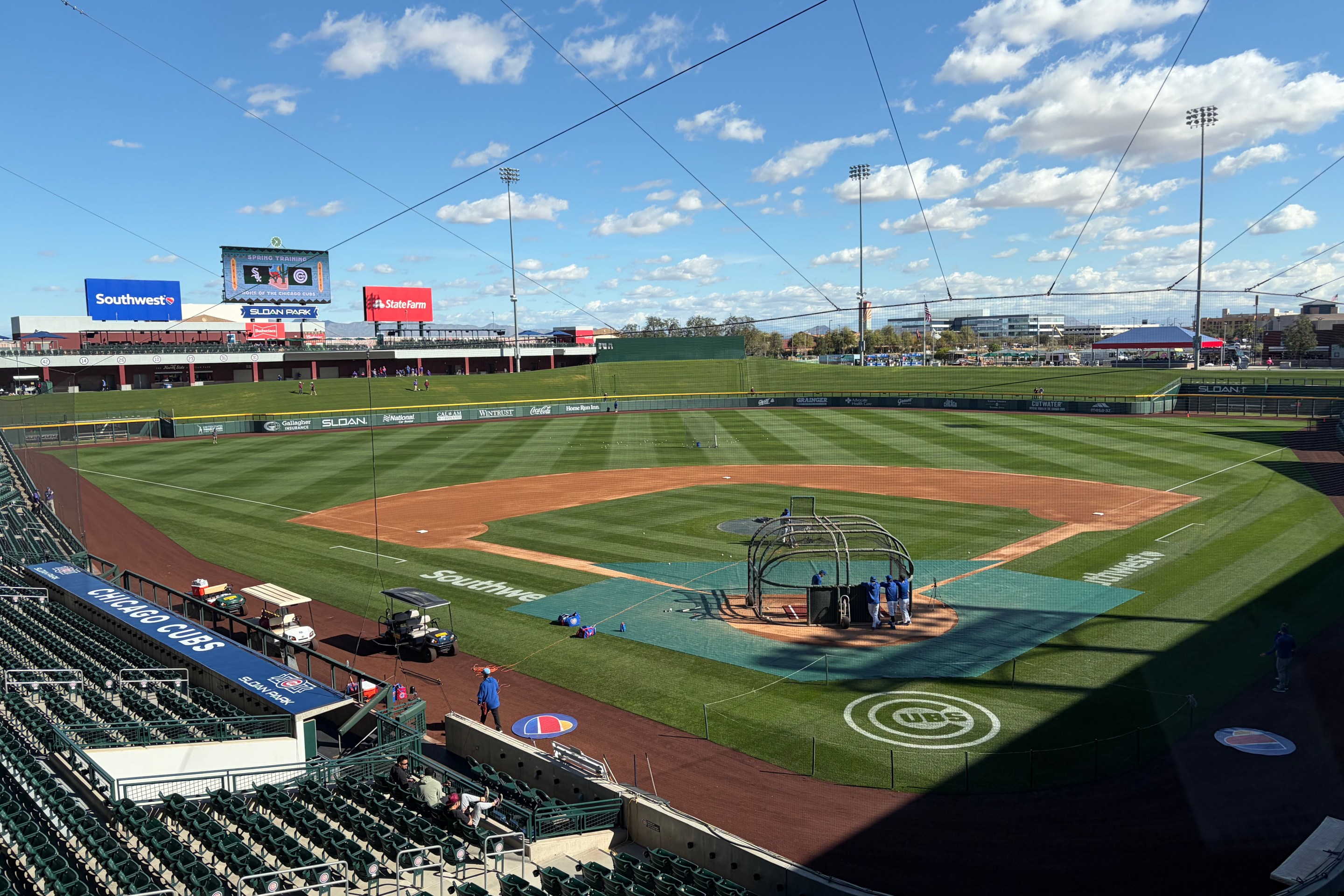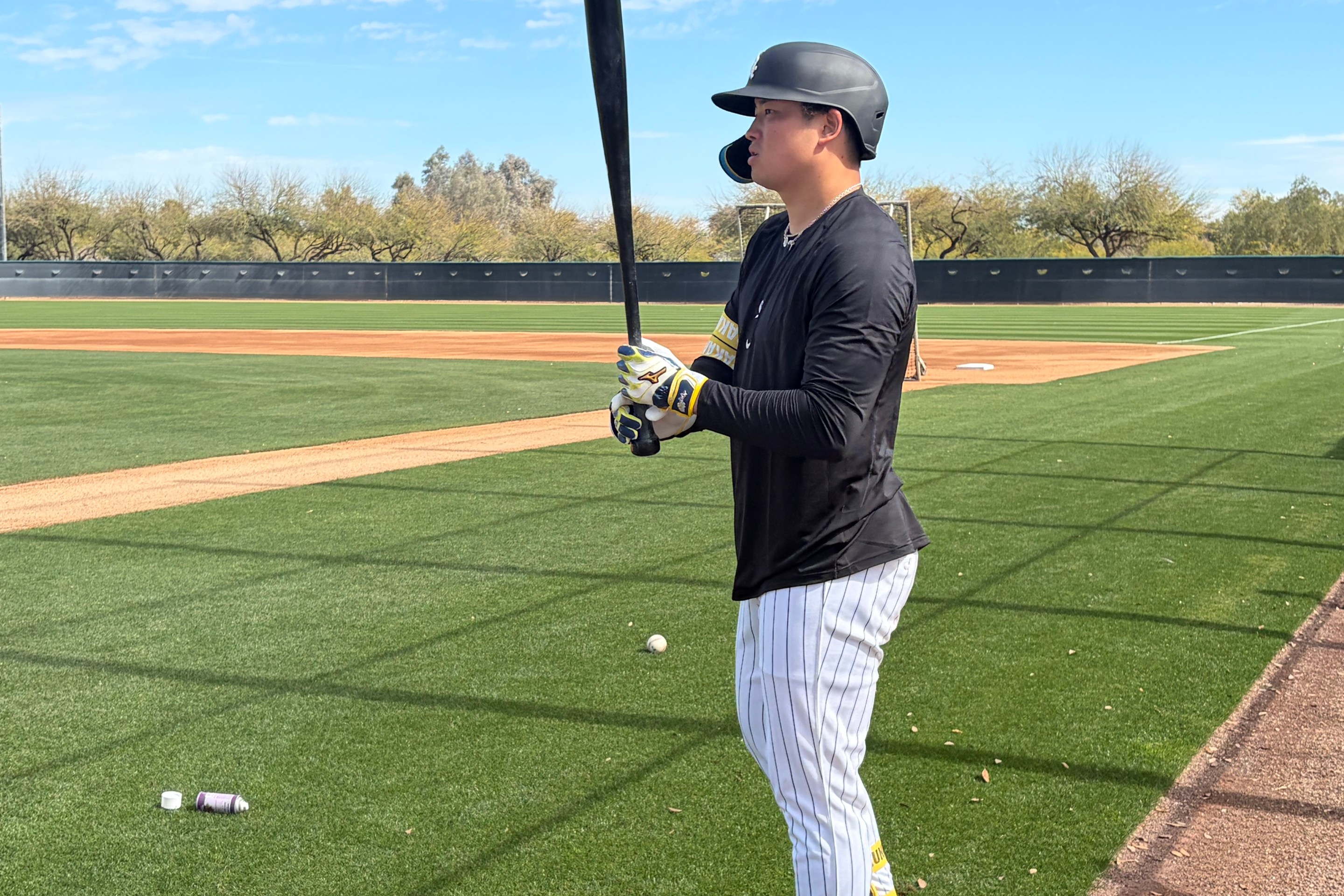Now the Rockies outfield and baserunning coordinator after playing 10 seasons in the majors, Chris Denorfia speaks about his impact on his friend in a self-effacing manner. Discussing his old platoon partner Will Venable shouting him out in his introductory press conference as an influence on his journey to becoming the White Sox newest manager, Denorfia repeats the word influence with a playfully dismissive chuckle.
Venable was known as a notorious sponge for details in lengthy Padres pre-series baserunning meetings run by Rick Renteria and Dave Roberts. He was described by teammates as "an extremely good student of the game" before he spent the last two years shadowing four-time World Series winner Bruce Bochy in the Rangers dugout. Given that sort of history, it's hard for anyone to feel like the singular voice in his ear.
But after a multi-year stretch in the early 2010s in San Diego where they accepted that "together in a position, the two of us were a very good right fielder," and being reunited as newly former players on the Cubs coaching staff, Denorfia wasn't surprised to be cited either.
"We went through a lot together," Denorfia said by phone, acknowledging the strangeness of a friendship forged in stealing each other's at-bats. "One thing we were always able to do is put the team ahead of ourselves. And that's that's a great quality that [Venable] has, that he isn't afraid to take a look in the mirror and realize when there might be a better way of doing things."
Adaptability will be an important quality for Venable, as even someone who was still playing in 2015 and been a uniformed coach for the last seven seasons is challenged to keep pace with a rapidly evolving sport. His former teammates aren't exactly graying, but can already look at the task ahead of Venable and note that he'll deal with shorter windows for player development and increased roster churn than he came up in as a player for Padres club that was able to carve out a team identity.
But Venable's initial view of what an effectively run major league clubhouse looks like were born in San Diego, a tenure highlighted by a 2010 Padres team that rode over 400 combined innings from former White Sox hurlers Clayton Richard and Jon Garland and an Opening Day payroll lower than Aaron Judge's annual salary to 90 wins and being edged out for the NL West title by the eventual World Series champion Giants on the last day of the season.
The White Sox are under no obligation to spend like they share the market size of those Padres teams. Still, a team made to feel it had to execute its way around being perpetually outgunned in their division, and a franchise trying to slowly establish performance standards after an 121-loss season, quickly sound like they could use the same mentality.
"We had guys that knew how to play and play with a chip on their shoulders," said former Padres infielder (now Dodgers TV analyst) Jerry Hairston Jr. "We knew we weren't the most talented group. In order for us to win ball games, we had to play smart. We had to make sure we didn't beat ourselves. We caught the ball, ran the bases extremely well and had pretty good leadership on that team."
Hairston would qualify that the cute underdog nature of that Padres team's payroll might mislead you into overlooking the presence of Adrian González in his prime before earning free agency dollars, or a 22-year-old Mat Latos having a career year before hitting arbitration. But knowing as well as anyone, Hairston sensed Venable being the son of a big leaguer gave him a precocious feel for his clubhouse and on-field responsibilities, making him someone he described teammates as trusting to execute in big spots despite being the second-youngest positional regular.
"He was a player -- from a manager standpoint, a coach's standpoint -- you never had to worry about," said Bud Black, former Padres manager turned current Rockies manager. "He was dependable. When I told him something, I knew that he would do what needed to be done."
"William has always been one of my favorites," said Renteria via text, explaining that his rare use of Venable's full first name became a sort of pet name between player and first base coach.
Venable's multi-sport status at Princeton is a testament to his athleticism and varied interests, but at the outset of his pro career it had him working a little from behind as a major leaguer. So rather than some kind of baseball nepo baby, Black saw Venable as someone whose path to the big leagues was very labor-intensive, make him an easy fit alongside a host of players who had to be detail-oriented and self-sufficient to have MLB staying power.
"One of the most well-accomplished defenders and baserunners that I've gotten to see, and getting to see it is the product of a lot of work that was put in every single day," said former Padres outfielder Kyle Blanks, who had a front-row seat to Venable's perfectionism about outfield throwing as his catch partner for years. "Both of us are pretty good-sized guys, so you need to have good communication out there, or it could go really bad for more than just one of you."
"He knew right from wrong," Black said. "As a player, when you do the right things, other players notice that when you do it consistently."
True now and certainly true 15 years ago, coaching staffs have limited bandwidth, and players like Venable who proved themselves capable of being prepared without direct attention can quickly become valued beyond their stat line. Such an environment both made it noticeable when the Padres clubhouse had lost its focus in a subsequent spring training, and also informed Venable's matter-of-fact style as multiple players recalled how he once addressed the team, which resonated because of how disinclined from showy gestures he was known to be.
"He basically said, 'That's not right, and we shouldn't be doing it,'" Denorfia recalled. "And you'd have to know Will to know that he really will only do that when it's absolutely necessary. He's not going to micromanage or just try to get in everybody's lives all the time. But if there's something that needs to be said, he's going to be the guy to do it. And for that reason, his voice carries weight."
"The messenger matters in any situation," said Blanks. "Managers today are definitely treated like they are the entire problem, when as a player, I know the reality is I have to play well today and I'm trying to. Will's a great a figure to take on that burden because I think he can really impact the attitude of the players. Someone like him, [Renteria, Roberts], who are very good communicators, a lot of the issue comes down to the players ... Will has easily the potential to mirror [their success] because he's able to communicate the game in a very unique way that as younger players come in with different experiences, I think he'll be very well-suited to make the appropriate adjustments for them to get the most out of their game."
When Venable told Black at the end of his playing career that he wanted to continue to work in baseball, his longtime manager suspected that he would head down the front office route, a side of the industry where he had plenty of admirers. Former Padres general manager Jed Hoyer was critical in securing Venable's first post-playing job with a team, as he was briefly a special assistant to Theo Epstein before shifting to Joe Maddon's coaching staff. And former teammate Chris Young, who forever remembers the unexpected accomplishments of the 2010 Padres when projecting team outcomes, recruited Venable to the Rangers coaching staff upon taking charge of their baseball operations.
The ambiguity around which path was the best fit for Venable is ostensibly a compliment, as it attests to how teammates like Denorfia and Hairston insist he would be successful in whatever he attempted, and that executives see him as comfortable enough balancing analytical information, scouting reports and character assessments to make objective decisions on players. But if front office types could do the work of managers while maintaining the trust and respect of players, they long since would have taken over by now, and Venable's skill set is seen differently and more suited to relating with players facing similar responsibilities to what he once shouldered.
"I know what kind of competitor he is and I'm not surprised he ended up back in the dugout. In my opinion, it was always a better fit for him," Denorfia said. "I don't think I've ever met a person that didn't like Will. When you meet him, he just has this really welcoming way to him."
"Will is one of those guys that has a passion for the game of baseball so that whatever responsibility he has, he's going to go out there and do the best possible job he can," Hairston said. "I think the biggest challenge for him is being able to delegate."
Venable was lauded for being an extension of Bochy in communicating with players in the Rangers clubhouse, and part of the intrigue of who will fill out his coaching staff beyond what looks like it will be a slew of holdovers, is who he identifies to serve as an extension of his presence at 35th and Shields. As much as Venable's colleagues see his past roles as natural stepping stones to being able to establish and communicate standards to a team, he's never had this level of power before, and what it can unlock remains an intriguing mystery.
"The best player you can be is inputting your effort forward, and I think he's going to be a very good communicator of how to accomplish that," Blanks said. "If he's given the freedom to manage that used to come with that position, he's going to be able to really implement some unique things that need that freedom tied to it. Whereas if he's told to communicate or play to a certain style, I think he'll be able to accommodate as well."






